Explore Evelyn’s Blog for Insightful Life Guidance
Explore Evelyn Foreman’s Blog for Inspiration
Subscribe for Latest Blog Notification

Exploring Community: Foundations of Belonging
In today’s fast-paced world, the concept of community has become more important than ever. But what is community, really? At its core, community is about belonging—a sense of connection that goes beyond shared spaces and focuses on emotional resilience, spiritual growth, and authentic living. It provides a foundation where self-awareness and personal transformation can flourish, helping us shift our mindset and elevate our lives.
Community isn't just about being part of a group; it’s about relationships built on trust, support, and mutual growth. In this blog, we’ll explore what makes a community truly meaningful and how it nurtures inner healing, self-consciousness, and the quest for deeper spirituality.

Why Community Matters: The Power of Belonging
Belonging is a fundamental human need, deeply tied to our mental and emotional well-being. A strong community provides the framework for fostering relationships that offer more than just casual interactions—it supports personal and collective growth.
Emotional Resilience: The Bedrock of Support
At the heart of any supportive community is emotional resilience. Life throws challenges our way—whether they come in the form of stress, loss, or unexpected changes, being part of a community gives us the strength to persevere. Emotional resilience allows us to process and overcome setbacks, and with the help of a community, these obstacles become less overwhelming.
By sharing stories, struggles, and successes, community members support each other through tough times, strengthening emotional bonds. The act of simply being heard can provide comfort and encourage healing, making it easier to bounce back from life’s adversities.
Building Self-Awareness in a Supportive Community
Self-awareness is one of the most powerful tools for personal growth, and a community can help us cultivate it. When we engage in meaningful conversations with others who share our goals and challenges, we are often prompted to look inward. This process can uncover habits, fears, or patterns of thinking that hinder personal growth.
How Self-Awareness Leads to Personal Transformation

Communities that emphasize self-awareness and reflection encourage members to engage in honest conversations about themselves. This self-reflection is key to personal transformation. As individuals become more aware of their thoughts, feelings, and behaviors, they begin to take steps toward positive change. This transformation is often gradual but meaningful, building a strong foundation for lasting growth.
Whether it's through group discussions, personal mentorship, or workshops, a community offers the tools and support needed to help individuals become more aware of how they interact with the world—and more importantly, with themselves.
The Intersection of Spirituality and Community
Spirituality is often a deeply personal journey, but it can also be enriched by the presence of others. Spiritual growth within a community context allows individuals to explore their beliefs and values in a space of acceptance and open-mindedness.
Spirituality vs. Religion: Exploring the Differences
When discussing community and spirituality, it's important to distinguish between spirituality vs. religion. Religion is often structured, involving specific practices and beliefs. In contrast, spirituality is more personal and fluid, centered on an individual’s search for meaning and purpose.

A community focused on spiritual growth creates an environment where members can explore spiritual practices, reflect on life’s bigger questions, and engage in collective rituals that promote inner peace. Unlike religious practices, which may require adherence to specific doctrines, spiritual communities encourage personal freedom and self-expression.
For example, practices like walking meditation—a mindfulness practice that involves walking with intention—are popular in spiritual communities. Such practices foster a connection between the body, mind, and spirit, offering opportunities for growth both individually and as a group.
Consciousness and Community: A Collective Awareness
Within a community, members often develop a collective consciousness. This refers to the shared awareness of emotions, thoughts, and experiences that unite the group. By tapping into this collective consciousness, individuals feel more connected and understood, reinforcing their sense of belonging.
At the same time, communities encourage self-consciousness, or individual awareness of one's own thoughts, emotions, and behaviors. By reflecting on how their actions affect both themselves and the group, individuals grow in emotional intelligence and self-awareness, which benefits not only them but the entire community.

Inner Healing Through Collective Support
Healing, whether emotional, spiritual, or psychological, is often seen as a solitary journey. However, many find that inner healing is accelerated and strengthened within the context of a supportive community. By sharing personal struggles and receiving validation from others, community members can begin to release past traumas and find peace.
Storytelling: A Powerful Tool for Healing
Storytelling plays a crucial role in healing within a community. When individuals share their experiences—both the good and the bad—they begin to let go of pain, anger, or sadness that may have been bottled up for years. Listening to others’ stories also helps to build empathy and understanding within the community, fostering an environment of trust and mutual healing.
The process of inner healing often requires confronting painful emotions or experiences and having a community to provide support can make the process less intimidating. Knowing that others are walking a similar path of healing brings comfort and encouragement, reminding individuals that they are not alone.
The Role of Authenticity in Community
In a world filled with expectations, pressure to conform, and societal norms, it’s easy to lose sight of who we truly are. Communities that value authentic living provide a sanctuary where individuals can express themselves without fear of judgment.
Living Authentically in a Supportive Space

Authentic living means being true to oneself—living in alignment with personal values, beliefs, and desires. However, achieving authenticity isn’t always easy, especially in a society that often values conformity over individuality. Within a supportive community, individuals find the courage to embrace their true selves, even when it goes against societal expectations.
When we live authentically, we allow others to see us as we are—flaws and all. This openness fosters deeper connections and strengthens relationships within the community. Authenticity is the cornerstone of trust and allows for more meaningful, fulfilling interactions.
Mindset Shifts: The Impact of Community on Personal Growth
One of the most profound effects of being part of a community is the ability to shift your mindset. Our mindset—the attitudes, beliefs, and perceptions we hold—plays a huge role in how we approach life. Communities, especially those focused on personal growth, provide the motivation and support needed to shift negative or limiting mindsets.
How Shifting Your Mindset Elevates Your Life
A positive mindset shift can lead to dramatic improvements in one’s life. Communities provide a supportive environment where individuals can adopt new perspectives and habits, whether it's by learning from others’ experiences, engaging in group activities, or receiving guidance from mentors.
By shifting your mindset, you begin to see opportunities where you once saw obstacles, fostering emotional resilience and adaptability. Over time, this mindset shift helps to elevate your life, allowing you to live with purpose, clarity, and confidence.

The Power of Connection: Fostering Inclusive and Compassionate Communities
The strength of a community lies in the quality of its connections. When built on inclusivity, unity, loving-kindness, and compassion, these connections cultivate a supportive environment where individuals feel seen, valued, and empowered. Healthy relationships are the backbone of a thriving community, providing a sense of belonging and shared purpose. Trust, open communication, and shared values are essential elements that not only strengthen the bond among members but also promote personal growth, emotional resilience, and spiritual exploration.
Nurturing Meaningful Connections and Unity
Building an inclusive and compassionate community means fostering connections that are rooted in love, understanding, and mutual support. Engaging in activities that promote unity, such as group discussions, meditation sessions, mindfulness practices, and workshops, allows members to connect on a deeper level. These shared experiences are vital for cultivating a sense of unity, where every voice is heard, and every heart is welcomed. Such spaces encourage spiritual growth, emotional well-being, and a greater understanding of self and others.
Creating a Loving-Kindness Culture
By prioritizing inclusivity and loving-kindness, a community thrives on the principles of compassion and support. It becomes a space where people are encouraged to express themselves freely, explore their spiritual path, and grow in alignment with their highest values. When each member feels truly connected and valued, the community becomes a source of strength and inspiration for all. Cultivating these meaningful relationships not only enhances individual well-being but also contributes to a larger, harmonious whole, creating an environment where love, unity, and compassion are at the heart of all interactions.
Fostering such connections within a community paves the way for a transformative experience—one that helps individuals connect with themselves, each other, and the world in a more profound and inclusive way.

How Walking Meditation Enhances Community Connection
Walking meditation is a unique practice that combines mindfulness with movement. In a community setting, walking meditation allows members to connect with their environment and each other in a peaceful, intentional way. This practice encourages mindfulness and reflection, making it an excellent tool for spiritual and personal growth within a community.
Walking together, whether in silence or in conversation, fosters a deep sense of connection and shared experience. It helps individuals stay present, grounded, and attuned to their surroundings—a valuable practice in today’s fast-paced world.
Spirituality vs. Religion: A Community of Open-Mindedness
For many, the question of spirituality vs. religion comes up when discussing community. While some communities are built around religious practices, others are more focused on the broader idea of spirituality—a personal exploration of life’s deeper questions. Communities that embrace spirituality often encourage openness, curiosity, and the exploration of diverse beliefs, allowing individuals to find their own path.

Community as a Foundation for Growth and Belonging
Community is much more than just a gathering of individuals; it’s a space for shared growth, healing, and transformation. From fostering emotional resilience to supporting spiritual growth and self-awareness, communities offer the foundation we need to thrive in life.
In a world where many people feel disconnected, being part of a strong, supportive community can make all the difference. It provides the space to grow emotionally, spiritually, and mentally, allowing us to live more authentically and pursue personal transformation. As you engage with others in meaningful ways, you’ll find that community is the ultimate source of strength, wisdom, and belonging.

FREE DOWNLOAD
The Awakened Soul's Inner Dialogue Guide
A 3 Day Guide to Reset & Restart: Unlocking the Power of Positive Inner Dialogue
© Copyright 2024 Evelyn Foreman - Privacy Policy - Terms & Conditions - Disclaimer

